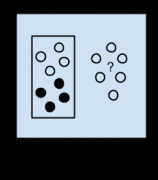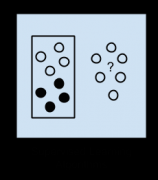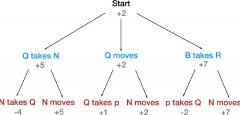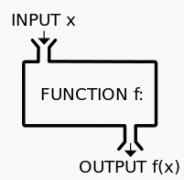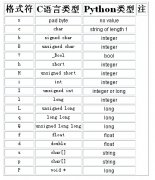python的即时标记项目练习笔记(2)
再来看第三个模块“规则”,这个模块,抛开那祖父类不说,其他类应该有的两个方法是condition和action,前者是用来判断读进来的字符串是不是符合自家规则,后者是用来执行操作的,所谓的执行操作就是指调用“处理程序模块”,输出前标签、内容、后标签。 来看下这个模块的代码,其实这个里面几个类的关系,画到类图里面看会比较清晰。 rules.py:
class Rule:
def action(self, block, handler):
handler.start(self.type)
handler.feed(block)
handler.end(self.type)
return True
class HeadingRule(Rule):
type = 'heading'
def condition(self, block):
return not '\n' in block and len(block) <= 70 and not block[-1] == ':'
class TitleRule(HeadingRule):
type = 'title'
first = True
def condition(self, block):
if not self.first: return False
self.first = False
return HeadingRule.condition(self, block)
class ListItemRule(Rule):
type = 'listitem'
def condition(self, block):
return block[0] == '-'
def action(self,block,handler):
handler.start(self.type)
handler.feed(block[1:].strip())
handler.end(self.type)
return True
class ListRule(ListItemRule):
type = 'list'
inside = False
def condition(self, block):
return True
def action(self,block, handler):
if not self.inside and ListItemRule.condition(self,block):
handler.start(self.type)
self.inside = True
elif self.inside and not ListItemRule.condition(self,block):
handler.end(self.type)
self.inside = False
return False
class ParagraphRule(Rule):
type = 'paragraph'
def condition(self, block):
return True
补充utils.py:
def line(file):
for line in file:yield line
yield '\n'
def blocks(file):
block = []
for line in lines(file):
if line.strip():
block.append(line)
elif block:
yield ''.join(block).strip()
block = []
最后隆重的来看下“语法分析器模块”,这个模块的作用其实就是协调读入的文本和其他模块的关系。在往重点说就是,提供了两个存放“规则”和“过滤器”的列表,这么做的好处就是使得整个程序的灵活性得到了极大的提高,使得规则和过滤器变成的热插拔的方式,当然这个也归功于前面在写规则和过滤器时每一种类型的规则(过滤器)都单独的写成了一个类,而不是用if..else来区分。 看代码:
import sys, re
from handlers import *
from util import *
from rules import *


